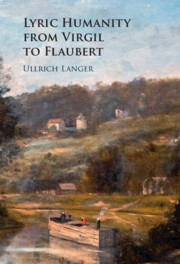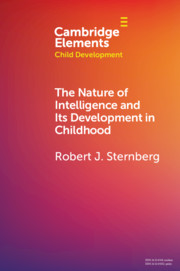Refine search
Actions for selected content:
4 results
Introduction
-
- Book:
- Lyric Humanity from Virgil to Flaubert
- Published online:
- 11 February 2023
- Print publication:
- 16 February 2023, pp 1-13
-
- Chapter
- Export citation

Lyric Humanity from Virgil to Flaubert
-
- Published online:
- 11 February 2023
- Print publication:
- 16 February 2023

The Nature of Intelligence and Its Development in Childhood
-
- Published online:
- 02 November 2020
- Print publication:
- 03 December 2020
-
- Element
- Export citation
Chapter 7 - Kant, miracles, and Religion, Parts One and Two
-
-
- Book:
- Kant’s <I>Religion within the Boundaries of Mere Reason</I>
- Published online:
- 05 May 2014
- Print publication:
- 17 April 2014, pp 137-155
-
- Chapter
- Export citation
